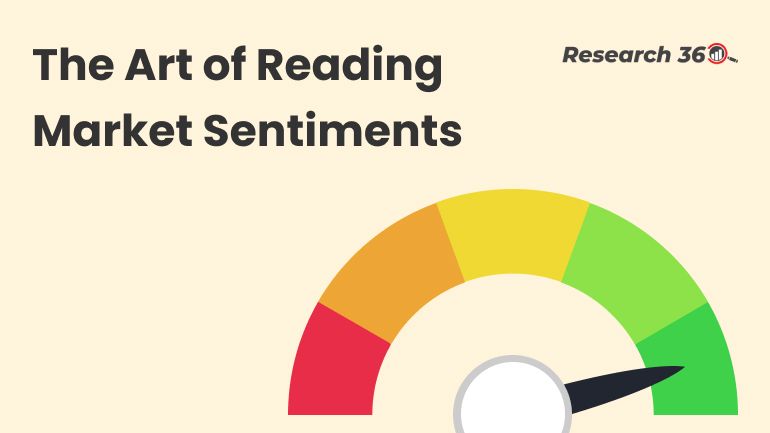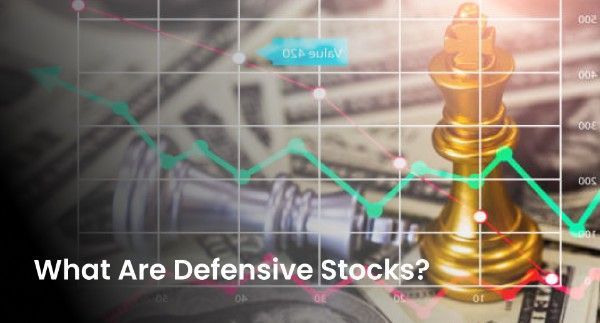The Art of Reading Market Sentiments

Master the art of market sentiment analysis and trading psychology with our beginner’s guide from Research 360. Get tips and techniques for interpreting market signals, analyzing investor behavior, and predicting market trends.
Market sentiment analysis is an important skill to master before you start trading in securities and other assets. There are some technical indicators that help.
A successful trading strategy is about more than merely understanding the fundamentals of stocks, currencies and commodities. You need to look beyond this and understand the general market sentiment. In fact, interpreting market signals and mastering trading psychology is an essential skill — one that you may often ignore as a beginner investor or trader.
However, by learning market sentiment analysis in the early stages of your investment journey, you can understand price changes better and predict market trends more accurately.
Decoding market sentiment: What is it and why does it matter?
Market sentiment, also known as investor sentiment, refers to the collective attitude of the investors and traders in the market at any given time. It defines how market participants feel about a specific stock or security, a market segment, or the overall market.
While long-term investors may not be heavily impacted by market sentiment, interpreting market signals is crucial for short-term traders. When strong enough, investor sentiments and expectations can strengthen market trends, reverse them or affect the prices of a stock significantly. Trading psychology and market sentiment analysis play a significant role in predicting any such potential price movements in the market.
4 Tips to Master the art of reading market sentiments
There are many ways to get better at interpreting market signals and figuring out how investors view the market. The following tips can be useful if you are a beginner looking for some essential yet easy ways to master the art of reading market sentiments.
Keep an eye on the news:
Various events ranging from companies releasing their quarterly reports to changes in the financial and economic policies of a country can affect the market sentiment. So, keep an eye on the financial and economic developments in the domestic as well as international markets. This will help notify you about any events that could potentially trigger a change in the current investor sentiment in the markets.
Analyse institutional investor behaviour:
Institutional investors exert tremendous influence over market movements. Any large-scale buy or sell transactions by investors in this category can greatly impact the prices of the stocks in various market segments. Such large-volume transactions can also impact how other retail investors perceive specific stocks and sectors. By analysing institutional investor behaviour, you can identify potential changes in retail investor sentiment.
Look for trends and changes:
Trends and price changes can also indicate market sentiment quite clearly. If you are just a beginner, you can start monitoring price changes and market trends to understand how they are tied to general investor sentiment. For instance, an uptrend may indicate positive sentiment, while a sudden drop may suggest the opposite. With practice, you can get better at analysing trading psychology and predicting how investors’ perceptions could drive the prices of assets in the market.
Make use of technical indicators:
Some technical indicators can also help predict how investors and traders feel about the market on the whole or even about a group of stocks. Examples of such indicators include the volatility index, the 52-week highs and lows, moving averages and the bullish percent index (BPI). These tools can help you measure market sentiment and plan your trades accordingly.
Conclusion
By using a combination of these tips and techniques, you can understand the market sentiment more thoroughly. This will help you make informed trading decisions. As a beginner, you may find reading and interpreting market sentiments challenging. However, it gets easier with time, as you gain more experience in market sentiment analysis and trading psychology. The trick is to keep yourself updated about market movements, read the news and stay tuned to how investors and traders react to major and minor events that impact the markets.

















